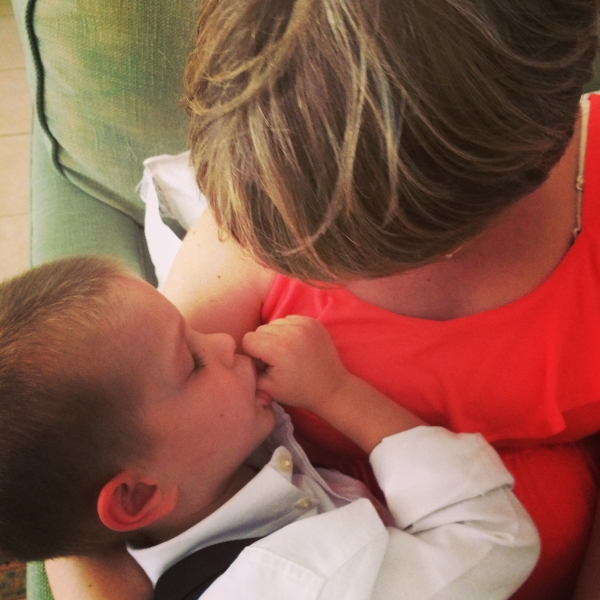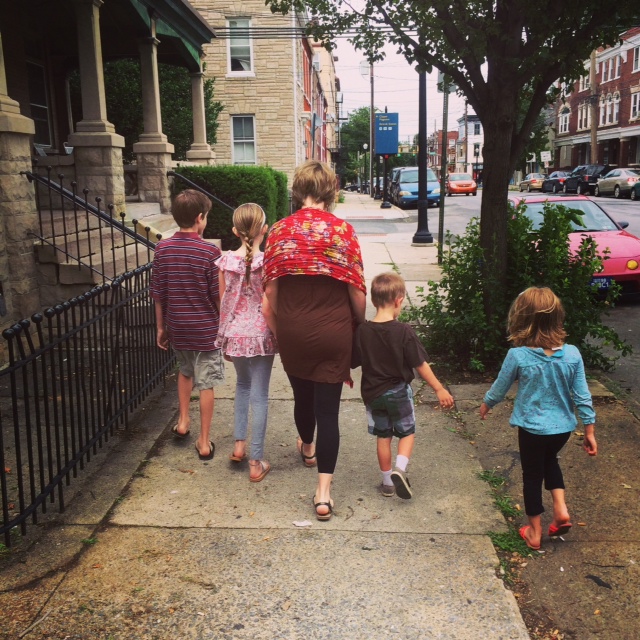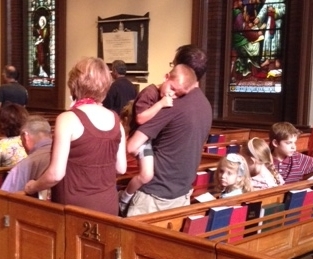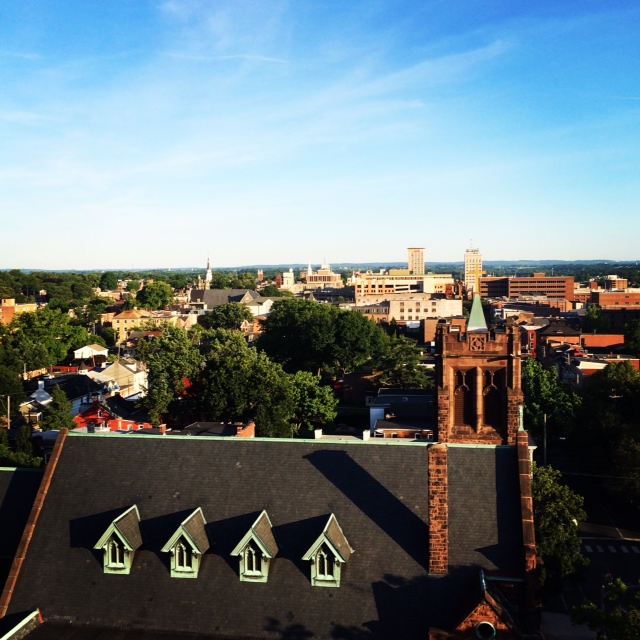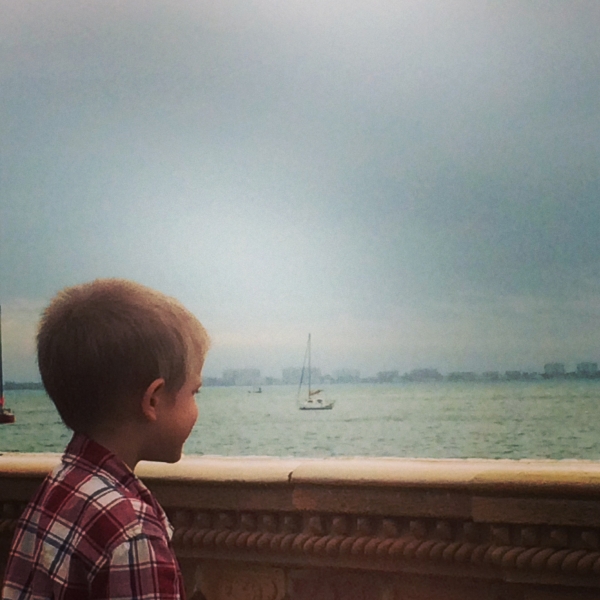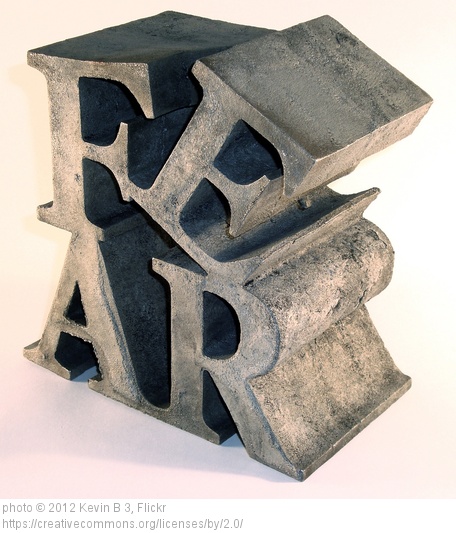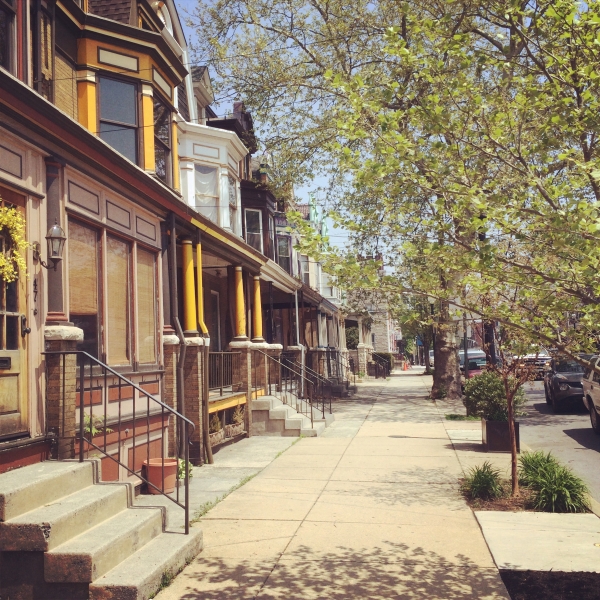
The Lord has been so good to me,
I feel like traveling on;
Until that blessed home I see,
I feel like traveling on
The wild raspberries are on the way, their blossoms lining the half-mile lane with white spots. The tree leaves have unfurled as well, like arthritic hands suddenly wide open, released from all pain.
Forty acres of spring will do that. It will open you up. Spring is like a confession, or the last soldier laying down the last weapon and sighing with relief.
* * * * *
There’s an ocean of pain and disappointment in the world, but sometimes we’re given a respite from this knowledge. Sometimes we’re given short periods of time where we can wander inland, away from those dark shores, and we can set up a life for ourselves. We forget, and we stay busy, because if we sit in silence we hear the distant roar of those persistent waves.
Eventually though, the reminder comes back, that death is everywhere, enormous pain just around the corner. Cancer. Divorce. Failure. Eventually you have to watch someone you love travel through a space of incredible pain, and there’s not a single thing you can do to change it.
So you sit there and you listen. You wait for it to pass, whatever that might mean, whatever that might look like.
As you get older, you go down to those painful shores much more often.
How does one get to the place where you’re not simply waiting for the next bad thing to happen? It has taken me 37 years to learn this, that life is not about finding a place where pain does not exist, but more about finding a way to sing through it.
* * * * *
We’re moving, again, to our tenth residence in fifteen years. We’ve lived in basements and almost-palaces, small one-story homes in Florida and even smaller cottages in England. We’ve battled stink bugs and mice and an enormous spider that lived under our bathtub in Buckinghamshire. When I went to the bathroom in the middle of the night, I could see one of its hairy legs sticking out of the hole where it lived.
When I came back up to the bedroom, Maile would always ask the same question in a sleepy voice.
“How’s Shelob?”
* * * * *
The kids run through the new house. It’s still empty – moving day is May 31st. Their voices echo down long halls, their footsteps vanishing into the third floor high above. But Abra trails behind, dawdling around an empty wardrobe.
Her hand reaches up and strokes one of the door handles. Her blond head of hair tilts to the side as she tries to peer through the crack. She turns and sees me sitting there. She smiles, embarrassed, but she can’t resist sharing her little secret.
“Daddy, look. It’s a magic wardrobe. If you go into it, you never know where you might come out.”
Where will we come out? I wonder. We’ve stepped into the wardrobe and we push our hands towards the back, feeling our way into…what?
* * * * *
Two in the morning on our first night in the new house. I stirred throughout the night, hearing the voices of young men as they walked the dark streets. A siren wails past the house. Then a car pulls up to the light just down the street, revving its engine, its exhaust fitted with some kind of other-wordly noise maker.
It screams over and over, waiting for the green light. Then the light turns and the car jets off into the night, into the city.
I hear footsteps pounding through the house. I sit up. Our oldest son races in from a bedroom he no longer shares with our youngest son. They all have their own rooms now, their own worlds.
“Dad,” he asks in a panicked voice. “What was that?”
“Just a car, buddy. Just a very loud car.”
“Oh,” he says, reluctantly returning to his own room.
* * * * *
A few days later, Maile wanders a grocery store in the city, looking for milk. A young boy, probably as old as our oldest son (10 years old), walks up to her holding two loaves of bread. He raised them towards her, and in broken English manages to communicate to her that he doesn’t know the price. She looks at the shelf.
“Those are two for $3,” she says. He holds up a handful of change and shrugs his shoulders. She helps him count out the money.
“I pay you?” he asks.
“No,” she says, smiling. “Come.”
So she takes him to the register and helps him check out. This is life in the city, seeing a ten-year-old child at the grocery store alone, helping him pay for a loaf of bread.
* * * * *
This is what it means, to live in the city, where you are forced to live with other people’s noise, where you walk outside and listen to Miss Joyce tell you for the hundredth time that she is being forced to move, that she doesn’t want to move because it means giving up her cats, that she doesn’t want to move because she’s rented here for 36 years. And she cries again, and you tell her it will be okay.
Living in the city for one week has taught me that if people look scary, it’s not their fault – it’s my fault. It’s how I choose to view them. I started saying hello to all the scary people, and 99% of them say hello in return, most of them with a smile on their face.
There’s something about living in the city that will unite you with all kinds of different people, if you let it.
* * * * *
We sit on the roof of our house and watch the fireworks explode in the sky, stars being reborn, or dying. The flashes of light reflect on the faces of my four children. Maile watches from the window behind us, the window we crawled through.
This season of life will change us, if we let it. It will open us up, like spring.
